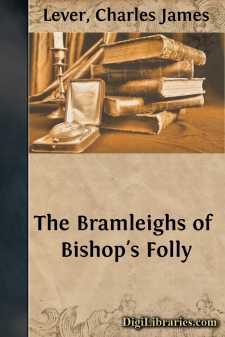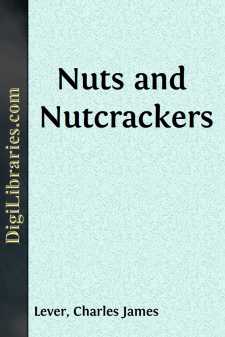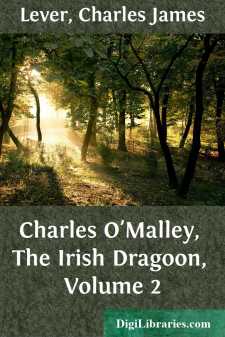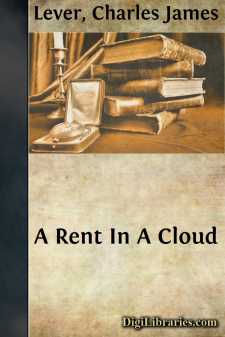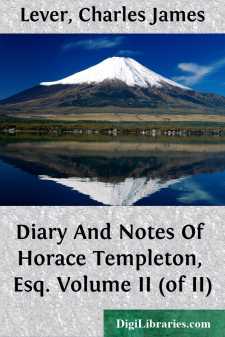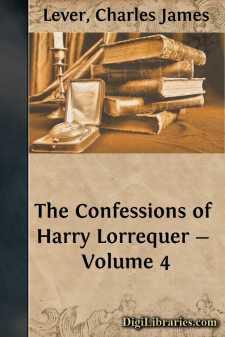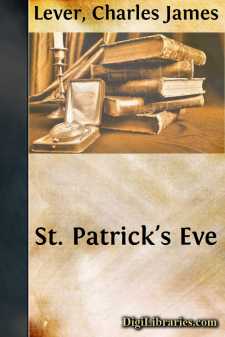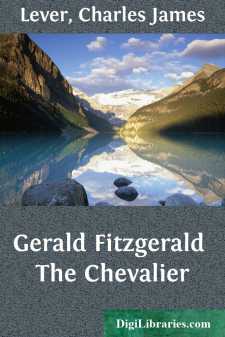Categories
- Antiques & Collectibles 13
- Architecture 36
- Art 48
- Bibles 22
- Biography & Autobiography 813
- Body, Mind & Spirit 142
- Business & Economics 28
- Children's Books 17
- Children's Fiction 14
- Computers 4
- Cooking 94
- Crafts & Hobbies 4
- Drama 346
- Education 46
- Family & Relationships 57
- Fiction 11829
- Games 19
- Gardening 17
- Health & Fitness 34
- History 1377
- House & Home 1
- Humor 147
- Juvenile Fiction 1873
- Juvenile Nonfiction 202
- Language Arts & Disciplines 88
- Law 16
- Literary Collections 686
- Literary Criticism 179
- Mathematics 13
- Medical 41
- Music 40
- Nature 179
- Non-Classifiable 1768
- Performing Arts 7
- Periodicals 1453
- Philosophy 64
- Photography 2
- Poetry 896
- Political Science 203
- Psychology 42
- Reference 154
- Religion 513
- Science 126
- Self-Help 84
- Social Science 81
- Sports & Recreation 34
- Study Aids 3
- Technology & Engineering 59
- Transportation 23
- Travel 463
- True Crime 29
The Bramleighs of Bishop's Folly
Description:
Excerpt
CHAPTER I. THE BISHOP'S FOLLY
Towards the close of the last century there was a very remarkable man, Bishop of Down, in Ireland: a Liberal in politics, in an age when Liberalism lay close on the confines of disloyalty; splendidly hospitable, at a period when hospitality verged on utter recklessness; he carried all his opinions to extremes. He had great taste, which had been cultivated by foreign travel, and having an ample fortune, was able to indulge in many whims and caprices, by which some were led to doubt of his sanity; but others, who judged him better, ascribed them to the self-indulgence of a man out of harmony with his time, and comtemptuously indifferent to what the world might say of him.
He had passed many years in Italy, and had formed a great attachment to that country. He liked the people and their mode of life; he liked the old cities, so rich in art treasures and so teeming with associations of a picturesque past; and he especially liked their villa architecture, which seemed so essentially suited to a grand and costly style of living. The great reception-rooms, spacious and lofty; the ample antechambers, made for crowds of attendants; and the stairs wide enough for even equipages to ascend them. No more striking illustration of his capricious turn of mind need be given than the fact that it was his pleasure to build one of these magnificent edifices in an Irish county!—a costly whim, obliging him to bring over from Italy a whole troop of stucco-men and painters, men skilled in fresco-work and carving,—an extravagance on which he spent thousands. Nor did he live to witness the completion of his splendid mansion.
After his death the building gradually fell into decay. His heirs, not improbably, little caring for a project which had ingulfed so large a share of their fortune, made no efforts to arrest the destroying influences of time and climate, and "Bishop's Folly"—for such was the name given to it by the country people—soon became a ruin. In some places the roof had fallen in, the doors and windows had all been carried away by the peasants, and in many a cabin or humble shealing in the county around slabs of colored marble or fragments of costly carving might be met with, over which the skill of a cunning workman had been bestowed for days long. The mansion stood on the side of a mountain which sloped gradually to the sea. The demesne, well wooded, but with young timber, was beautifully varied in surface, one deep glen running, as it were, from the very base of the house to the beach, and showing glimpses, through the trees, of a bright and rapid river tumbling onward to the sea. Seen in its dilapidation and decay, the aspect of the place was dreary and depressing, and led many to wonder how the bishop could ever have selected such a spot; for it was not only placed in the midst of a wild mountain region, but many miles away from anything that could be called a neighborhood. But the same haughty defiance he gave the world in other things urged him here to show that he cared little for the judgments which might be passed upon him, or even for the circumstances which would have influenced other men....


